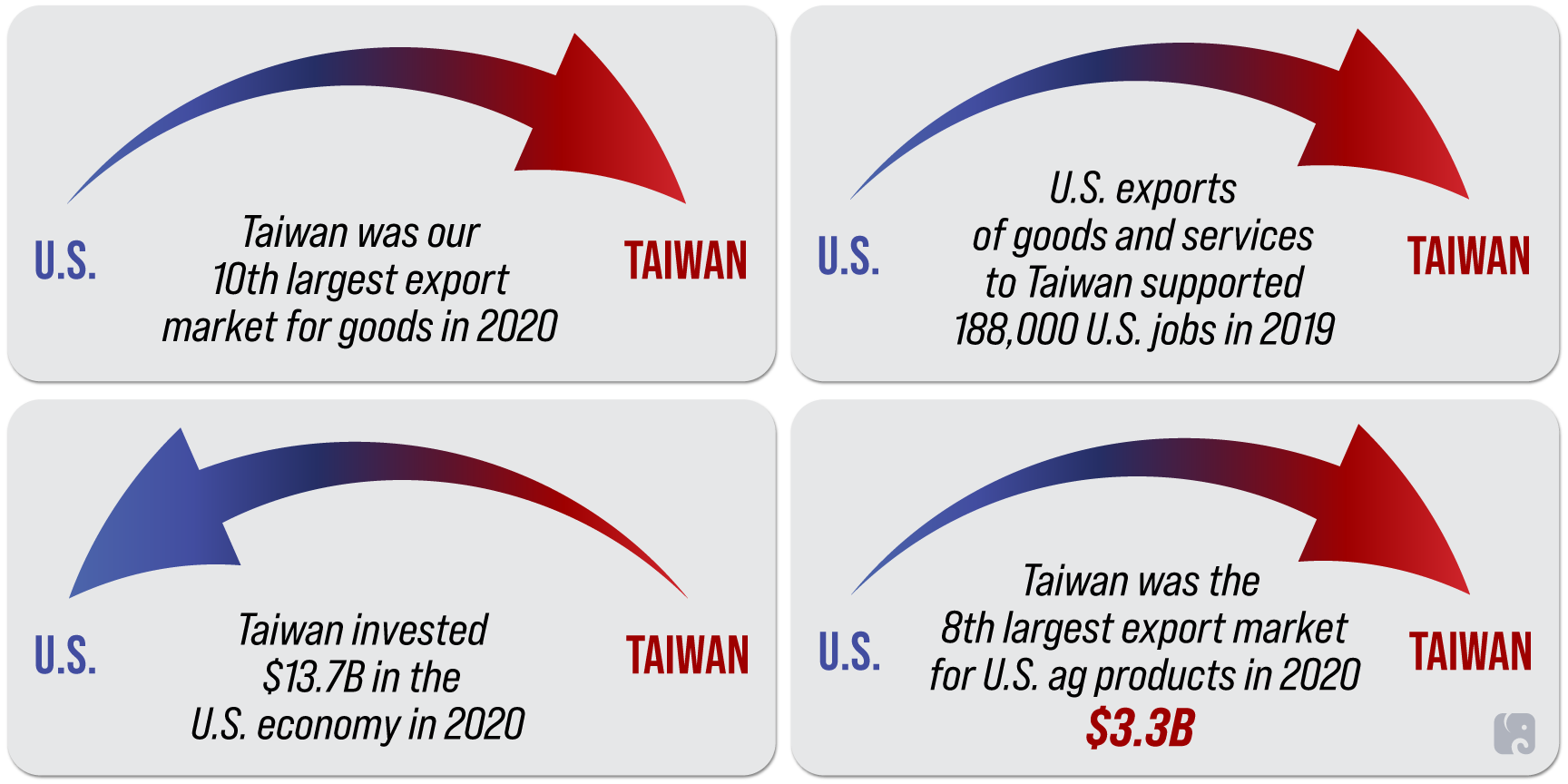Deterring the China Threat
KEY TAKEAWAYS
- China is becoming more aggressive in its ambition to take over Taiwan, which could have drastic consequences for the global economy and U.S. interests.
- The U.S. has a statutory obligation to help Taiwan defend itself, which we can do by providing training, encouraging international support, and selling it weapons and technology to bolster its defense.
As Xi Jinping consolidated power at China’s 20th Communist Party Congress last month, he made some of his boldest statements yet about his plans to seize Taiwan. According to media reports, the Communist Party leader said he would “take all necessary measures” to bring the island under Chinese control and amended China’s constitution to specifically state its opposition to Taiwanese independence.
This follows an increasing trend of Chinese military belligerence and China acting as a so-called revisionist power, one that wants to reshape the current global system to reflect priorities of the Chinese Communist Party. China continues to send military aircraft through Taiwan’s air defense identification zone. Its navy and “maritime militia” of fishing boats operate close to Taiwan’s waters and encircle the island.
In August, around the time of House Speaker Nancy Pelosi’s visit to Taiwan, China staged military exercises to demonstrate its ability to blockade the island, including shooting missiles that landed in Japan’s exclusive economic zone. While the U.S. military had previously believed China was preparing to move against Taiwan by 2027, the Pentagon’s chief of naval operations said at an event last month that we should be thinking of it as more of a near-term possibility.
China’s threat to the Global Economy
Under the Taiwan Relations Act, which became law in 1979, the U.S. is obligated to help Taiwan provide for its own defense. A war in the Taiwan Strait has severe security implications for the United States – it could result in a key area of the world falling under Chinese control. On top of that, the effects on the global economy would be devastating, especially if China succeeds in taking over Taiwan.
Taiwan a Major U.S. Trade Partner

First, Taiwan is a substantial U.S. trading partner, and disruptions in that trade, even temporarily, could harm American farmers and other workers.
Second, because the strait is a top shipping route, a military conflict could snarl the global supply chain and severely disrupt U.S. trade. Four of the top 10 U.S. trade partners rely on this shipping route to get goods in and out of the United States. Bloomberg estimates that nearly half of the global container fleet and 88% of the world’s largest ships by tonnage pass through the area.
Third, Taiwan currently has 92% of the world’s capacity to manufacture the most advanced semiconductors, according to Boston Consulting estimates. An invasion or blockade that takes this production offline could cause disruptions on a far greater scale than the current chip shortage, Russia’s war in Ukraine, and COVID-related supply chain issues.

If China succeeds in taking Taiwan, it would have even more economic might that it could use to coerce the rest of the world’s economies, and the CCP would have the ability to stop the shipment of energy, food, medicine, and other key goods out of Asia. With a dominant regional position, other countries would find it difficult to keep China out of the Trans-Pacific Partnership or other trading arrangements, putting the U.S. economy at a severe economic disadvantage in the region. Taking over Taiwan’s semiconductor industry would allow China full control of the high-tech chips that power the world’s most advanced economies.
How the U.S. can help Taiwan Defend itself
The U.S. is not powerless to influence what happens with Taiwan, and we should not allow China to dictate our approach. Anything we can do to assist Taiwan now may help deter Xi from undertaking an invasion if he believes there are high enough costs, either economically through a crushing international sanctions campaign led by the U.S. or politically through internal Chinese strife a failed invasion campaign might trigger.
In the short term, the Biden administration must speed up foreign military sales, a process in which Taiwan is able to buy weapons from the U.S. arms industry. Critical systems that Taiwan has purchased to counter a Chinese invasion like the Stinger missile and Harpoon anti-ship missile are not scheduled to be delivered until the end of the decade. The administration should expedite arms sales to Taiwan and work with industry to increase the capacity to produce enough weapons to sell to allies like Taiwan and Ukraine. Congress can help shore up the U.S. defense industrial base by providing the resources and oversight necessary to adapt it to the speed and scale of 21st century challenges. The U.S. must also have the political will and put resources into expanding our training of the Taiwanese military. Division H of the FY 2023 National Defense Authorization Act seeks to address these issues.
It is in America’s interest, from both the economic and national security perspectives, to bolster Taiwan’s defense and deter Chinese military action in the strait. The faster we can supply the needs of Taiwan, the sooner and better we can secure our own interests.
Next Article Previous Article
